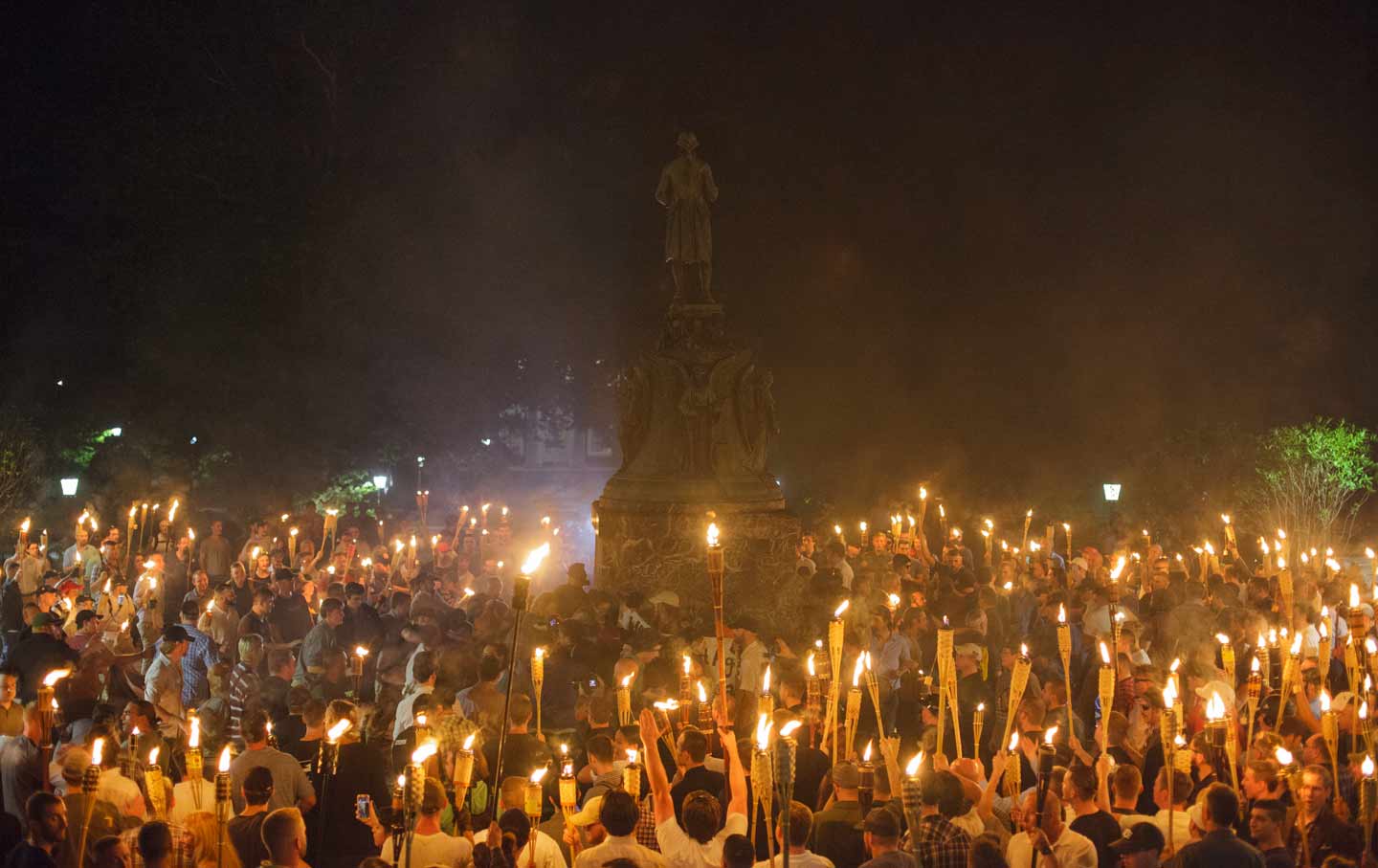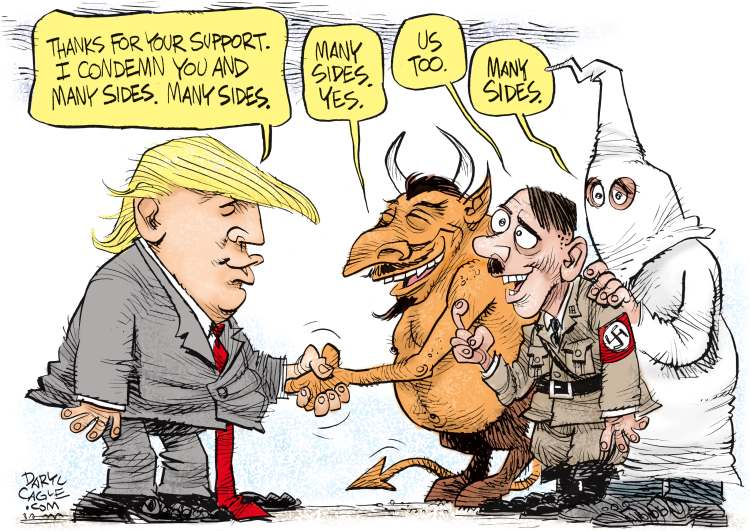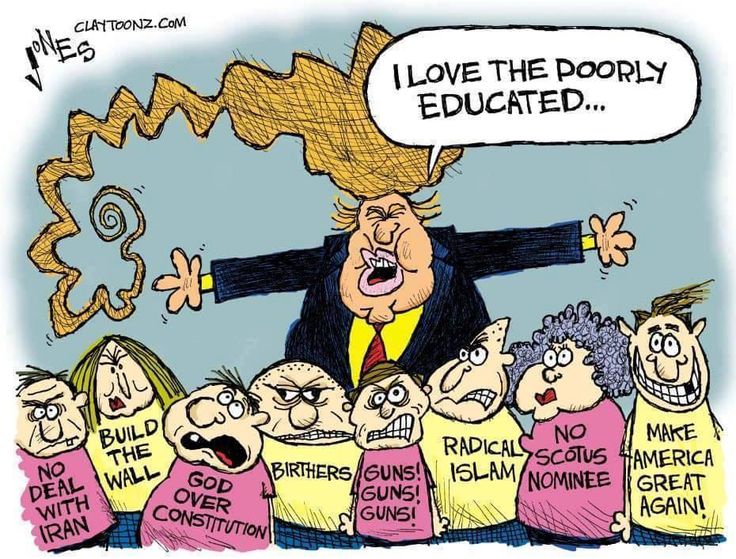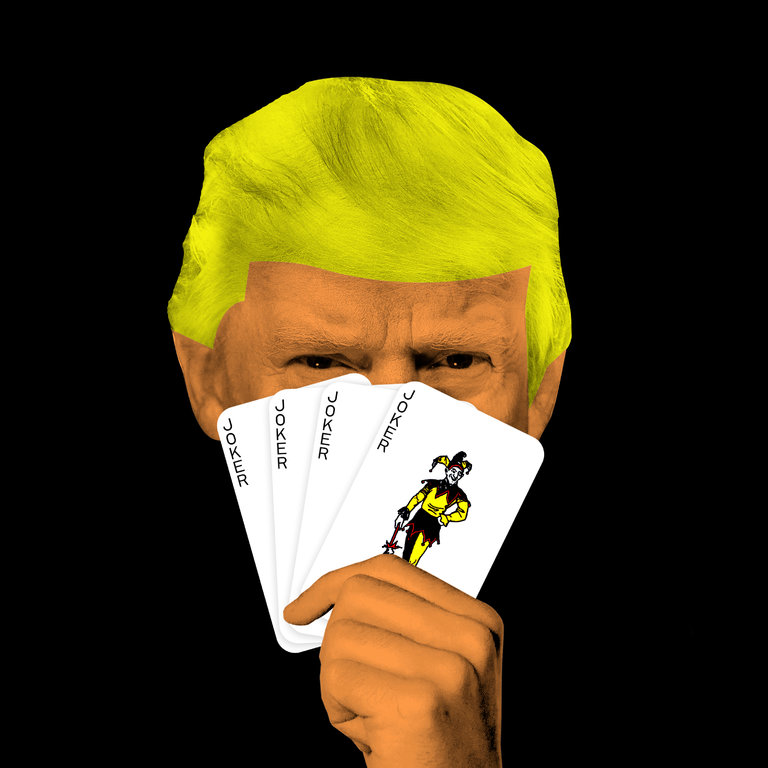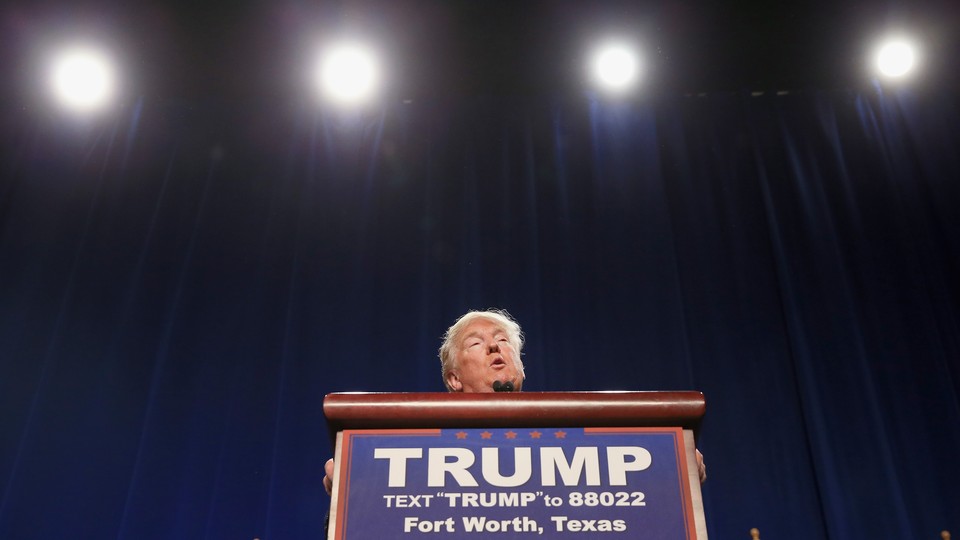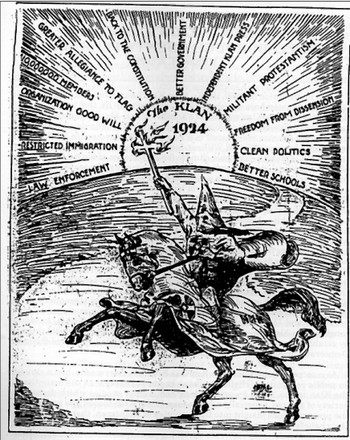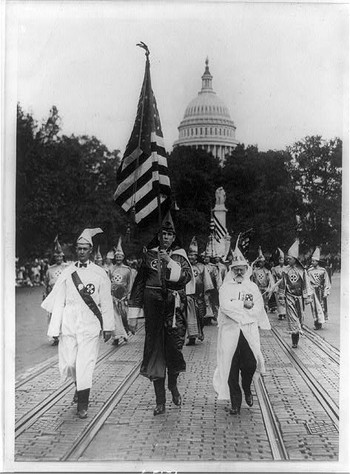POLITICS
Make America White Again?
Donald Trump’s language is eerily similar to
the 1920s Ku Klux Klan—hypernationalistic
and anti-immigrant.
By
Kelly J. Baker
Tom Pennington / Getty. MARCH 12, 2016
Last weekend,
Saturday Night Live produced a mock “
Voters for Trump” ad, in which everyday “real Americans” gently describe why they support Donald Trump for president—before they are all revealed to be white supremacists, Klan members, and Nazis. Trump, of course, not only received former Ku Klux Klan leader David Duke’s
support for his candidacy, but also declined to
disavow the Ku Klux Klan on CNN.
This has happened before. As
The Atlantic’s Yoni Appelbaum
pointed out, the Republican front-runner’s refusal to repudiate white supremacists’ support as well as the bombast in his campaign are both echoes of the Ku Klux Klan. As a historian of the 1920s Klan, I noticed the resonances, too. Trump’s “Make America great again” language is just like the rhetoric of the Klan, with their emphasis on virulent patriotism and restrictive immigration. But maybe Trump doesn’t know much about the second incarnation of the order and what Klansmen and Klanswomen stood for. Maybe the echoes are coincidence, not strategy to win the support of white supremacists. Maybe Trump just needs a quick historical primer on the 1920s Klan—and
their vision for making America great again.
In 1915, William J. Simmons, an ex-minister and self-described joiner of fraternities, created a new Ku Klux Klan dedicated to “100 percent Americanism” and white Protestantism. He wanted to evoke the previous Reconstruction Klan (1866-1871) but refashion it as a new order—stripped of vigilantism and dressed in Christian virtue and patriotic pride. Simmons’s Klan was to be the savior of a nation in peril, a means to
reestablish the cultural dominance of white people. Immigration and the enfranchisement of African Americans, according to the Klan, eroded this dominance and meant that America was no longer great. Simmons, the first imperial wizard of the Klan, and his successor, H.W. Evans, wanted Klansmen to return the nation to its former glory. Their messages of white supremacy, Protestant Christianity, and hypernationalism found an eager audience. By 1924, the Klan claimed 4 million members; they wore robes, lit crosses on fire, read Klan newspapers, and participated in political campaigns on the local and national levels.
To save the nation, the Klan focused on accomplishing a series of goals.
A 1924 Klan cartoon, “Under the Fiery Cross,” illustrated those goals:
restricted immigration,
militant Protestantism,
better government, clean politics,
“back to the Constitution,”
law enforcement, and “greater allegiance to the flag.”
Washington, D.C., September 1`3, 1921
Along with the emphases on government and nationalism, the order also mobilized under the banners of vulnerable white womanhood and white superiority more generally. Nativism, writes historian Matthew Frye Jacobson in
Whiteness of a Different Color, is a crisis about the boundaries of whiteness and who exactly can be considered white. It is a reaction to a shift in demographics, which confuses the dominant group’s understanding of race. For the KKK, Americans were supposed to be only white and Protestant. They championed white supremacy to keep the nation white, ignoring that citizenry was not constrained to their whims.
The Klan was facing a crisis because the culture was changing around them, and nativism was their reaction. Demographic shifts, including immigration, urbanization, and the migrations of African Americans from the South to the North gave urgency and legitimacy to the Klan’s fears that the nation was in danger. From 1890 to 1914, more than 16 million immigrants arrived in the United States, and a large majority were Catholics from Germany, Ireland, Italy, and Poland. Around 10 percent were Jewish. The Klan described the influx of immigrants as a “menace” that threatened “true Americanism,” “devotion to the nation and its government,” and, worst of all, America as a civilization. Evans claimed that “aliens” (immigrants) challenged and attacked white Americans instead of doing the right thing—and joining the Klan’s cause. (Yes, strangely, he expected immigrants’ support even though the Klan limited membership to white Protestant men and women. Of course, it’s also strange that Trump expects Latino support.) Writing in the Klan newspaper
The Imperial Night-Hawk in 1923, Evans declared that immigrants were “mostly scum,” a dangerous “horde.”
Unsurprisingly, the 1920s Klan supported legislation to restrict immigration to preferred countries with Anglo-Saxon and Scandinavian roots. The order championed the
Immigration Act of 1924, which limited immigration visas to 2 percent or 3 percent of the population of each nationality from the 1890 census. When President Calvin Coolidge signed the bill into law, the Klan celebrated the continued protection of the “purity” of American citizenship. A white Protestant citizenry and the desire to maintain their dominance culturally and politically, then, defined 100 percent Americanism.
Their rhetoric and dramatic displays of robes and burning crosses appealed in the 1920s. White men and women turned to the Klan for reassurance that America was a nation founded by white people for white people.
The Imperial Night-Hawk crafted histories absent of native peoples, African Americans, Catholics, and Jews that confirmed what readers wanted to hear: White Protestants were the creators of America, and the nation would only succeed with their continued dominance. The Klan made enemies of immigrants but also of any people they considered “foreign” who already resided on American soil. Threats appeared everywhere, from newly arrived immigrants to Catholics, Jews, and African Americans who were already citizens—though the order wasn’t of the opinion that they should be.
Making America great required exclusion, intolerance, and vitriol. Unfortunately for the Klan, their message of 100 percent Americanism started losing ground by the end of the 1920s. Public scandals involving Klan leaders and convictions of Klansmen for murder made white Americans reconsider their allegiance to the order and its increasingly tarnished ideals. The Klan started to appear too extreme and dangerous for even the slightest association. Their steep rise was tempered by an equally steep fall. Moreover, the Klan developed an image problem: their persistent association with racism—which continues to plague the modern Klans despite efforts to rebrand their image to reflect the love of the white race, not racism per se.
The Klan’s message of 100 percent Americanism and restrictive immigration resonated in the 1920s, and their message gains traction again and again every time white Americans encounter social change and shifting demographics. With a black president, LGBT equality, an enormous Hispanic community, and predictions that America will soon be a majority minority country, their message resonates now, too. That’s why a former Klan leader is encouraging other white supremacists to vote for Trump and why
The New Yorker’s Evan Osnos found that extremist white-rights groups also plan to vote for him. Maybe Trump doesn’t know better. Or maybe the echoes are less like echoes and more like the purposeful conjuring of a racialized message—one that too many white voters still want to hear.
Kelly J. Baker is a freelance writer and the author of the book
Gospel According to the Klan. She blogs at
www.kellyjbaker.com.
https://twitter.com/kelly_j_baker
Donald Trump’s Language Is Similar to the 1920s Ku Klux Klan: Nationalism and Anti-immigration - The Atlantic






